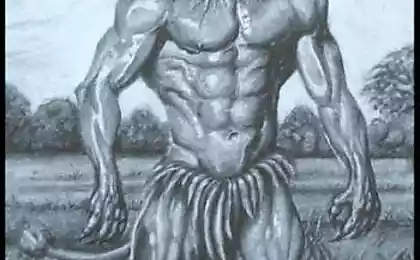496
Tablet love: neyropreparaty against the deadly attachment
Forty two million three hundred eighty thousand two hundred fifty eight
© Dan Saelinger
Love is not always as good as they write about it in novels. It can not only cause euphoria and sense of intimacy, but also the pain of loss, psychological trauma and even provoke violence. And yet from the point of view of the physiology of the brain, love with all its sharp turns, UPS and downs — just a hormonal process control which can be partly right now. A group of researchers from Oxford University have published a scientific article on drugs that help cure passion, sympathy and affection.
The desire to get rid of love seems to exist as much herself: the of Naso, Ovid, Titus Lucretius Kara, William Shakespeare and many other authors can find a couple of lines about what this feeling is like a sickness. Devastating, deeply traumatizing passion, jealousy, misunderstanding, loneliness, and grief can all be the fruits of love, and all that we met many times in literature, philosophy, and drama in your own life. We know that the problem love is not only unrequited desire to stay close to the person prone to domestic violence, incestuous love, passion for the head of the cult and sexual interest in minors is cause lots of trouble, even if the person is able to resist the action.
Attempts to "do something" with unnecessary passions always were made in different times he unsuccessfully tried to cure cupping, sports exercises, strict diet and prayer. These funds, unfortunately, does not always help. Then love was seen as something firmly rooted in the body — but today we know that this is only partly true.
Eternal sunshine of the spotless mind: love eyes mosgas the point of view of neuroscience love is a product of the activity of the brain is a complex neurobiological phenomenon that emerged in the course of evolution. It relies on the mechanics of trust, pleasure and rewards and is closely linked with the work of the cerebral cortex, and the activities of the limbic system, which is located deep in the skull and is one of the most ancient elements of the brain responsible for basic survival reactions, "run", "sariaya", "eat" and so on.
Love can bring people together and keep them close to the birth and rearing of the offspring, from prehistoric times is the basis of survival of the species. According to the neuroscientist, an expert in the field of anthropology Helen Fisher and her research team from Rutgers University (NJ, USA), it is based on three neurophysiological subsystems that triggers sexual attraction, sympathy and affection. Sexual attraction, which goes on stage first, pushing us to meetings with potential partners, sympathy allows you to choose the right among them, and affection helps to create a long-term relationship and enables us to cooperate with each other until, until execution of parental duty.
The work of each of the three subsystems based on the effects of hormones and neurotransmitters that are produced in our body. For example, sexual desire is associated with estrogen and testosterone — sex hormones, which is how both men and women. The ability to assess someone's attractiveness is associated with pleasure hormones and stress: dopamine, serotonin and adrenalin, which allow us to focus on the object of attraction, mentally returning to it again and again and feel the excitement in his presence. As for attachments, here on the site are the neuromodulators oxytocin and vasopressin. They inspire us with a sense of calm and confidence and naturally push us towards behavior that is potentially favorable for a relationship.
The problem is that all these subsystems are operated simultaneously, so that we can wish for a potential partner, take another attractive and maintain an ongoing relationship with a third. At the same time Autonomous action "component of love" can not call. For example, testosterone stimulates the production of vasopressin, which positively affects the formation of attachment and oxytocin affect the activity of dopaminergic pathways linking attachment with attractiveness, so the most loved is the one who is closest.
Against lust: neyropreparaty and antiandrogenicity sure that in the future doctors, psychotherapists and psychiatrists will be "neyropreparaty" — high performance synthetic modulators of brain activity is directed to specific receptors in various reflex arcs and is able to help the person cope with the unwanted passion. Today, these drugs do not — but many drugs are designed for other purposes, inhibit sexual desire as a side effect. For example, antidepressants — especially selective inhibitors of serotonin reuptake — inhibit the production of sex hormones. Libido also reduce pain relievers with butalbitalom, opiates and other drugs.
In the jurisprudence of the United States, Russia, Britain and other countries as punishment for sexual crimes against minors is the radical procedure of chemical castration, antiandrogens which block androgen receptors in cells, preventing the action of testosterone, causing sexual attraction disappears. Such drugs have side effects that can last a lifetime: increased fragility of bones, obesity etc.
From the point of view of human rights is now recognized chemical castration extremely controversial procedure. In history there are examples of when it becomes an instrument of homophobia or used improperly. For example, the famous British mathematician, logician, and cryptographer Alan Turing, who cracked the code of the Enigma of the Third Reich, in 1952, agreed to voluntary chemical castration to avoid imprisonment for his homosexuality. While in the UK it is punishable by law and considered a mental disorder. The punishment of "guilty" could choose chemical suppression of libido or prison. Turing chose the former. Two years later he died from cyanide poisoning, which many researchers consider suicide.
Against likes: drugs OCRV 1999 a group of specialists under the leadership of neuroscientist Donatella Marazziti from the University of Pisa found that in the first months of love resembles obsessive-compulsive disorder (OCD). In both cases, study participants worried about the smallest detail and suffered from obsessive thoughts; in addition, doctors have found changes in the transport protein that moves serotonin. The level of this protein and serotonin all people were the same, but not consistent with the norm. "This suggests that love in the literal sense of the word introduces us into a state that cannot be called normal," — noted experts. When 12-18 months, they again tested the lovers of the participants, it was found that serotonin levels have returned to normal values, and the obsessive idealization of the partner (the ability to produce abstract and concrete mental representations of absent stimuli) disappeared.
All this means that the cure for OCD, roughly speaking, help from excessive sympathy for the object of love. Patients with obsessions and compulsions respond well to treatment with selective inhibitors of serotonin reuptake, which, as we know, suppresses libido. Also, these antidepressants affect the release of dopamine, causing a decrease in euphoric moods, which help to form an attachment. From selective inhibitors of serotonin reuptake, there is another side effect that can affect a romantic relationship: they reduce the ability to worry about other people's feelings. So taking this type of antidepressants reduces the risk of falling in love. For patients with depression is probably for the best, because love at all a pleasant feeling — it's still a lot of stress.
Against attachment: dopamine anticonstitutional for affection and reducing stress hormones vasopressin, oxytocin and dopamine are produced in humans and other monogamous mammals during touch, hugs, kisses, stroking, sex, orgasm and breastfeeding. They largely held together by pairs, and mothers and their offspring. While oxytocin and vasopressin help to create the signals needed for a successful search of your partner or child among the other creatures of the same species and gender (and as a result you can "get to know a cute gait") and dopamine is involved in the formation of rewarding experiences: joy, tenderness, inspiration, and other.
Scientists have found that the direct introduction of oxytocin in the brain of females of gray voles and vasopressin in the brain of males of the same species makes it easier for animals is the process of creating relationships even during periods when they were not ready to mate. If rodents received dopamine or oxytocin antagonists — drugs that block the relevant receptors — they are deprived of their propensity for monogamy and go to the short-lived polygamous relations.
Of course, one can argue that the mechanism of formation of affection in humans is arranged exactly the same as that of gray voles, but certain similarities between us. In addition, multiple studies in recent years, neuroscientists and anthropologists found out some interesting facts about love: in particular, that from the point of view of the pattern of dopamine decreases, it resembles cocaine addiction. To treat it today used dopamine antagonists, which are "help" and of romantic attachment.
Ethical failure: individual otvette this, of course, does not mean that love is a narcotic dependence, although from the point of view of the hormonal system of rewards in our brain, it works exactly as a dependency. Because love exists on the planet much longer than drugs that are just using the tools designed for completely different purposes: the maintenance of interpersonal relationships, the successful upbringing of offspring (own or adopted) and, in the end, evolution as a species, and personality. And yet, love, to put it mildly, does not always lead to the last and instead of personal growth or success of the parent ends in a painful breakup, psychological or physical trauma, violence and murder. Can we "treat" the severe cases of chemical or attempt to ward off unwanted emotions will lead us into the world of dystopia? The unequivocal answer to this question does not seem to exist, and in each case, the decision should be individualized. And when the inevitable violence or death can be prevented, and hopeless pain of loss is to downplay, it is very easy to understand those who are willing to go for it.
Source: theoryandpractice.ru
© Dan Saelinger
Love is not always as good as they write about it in novels. It can not only cause euphoria and sense of intimacy, but also the pain of loss, psychological trauma and even provoke violence. And yet from the point of view of the physiology of the brain, love with all its sharp turns, UPS and downs — just a hormonal process control which can be partly right now. A group of researchers from Oxford University have published a scientific article on drugs that help cure passion, sympathy and affection.
The desire to get rid of love seems to exist as much herself: the of Naso, Ovid, Titus Lucretius Kara, William Shakespeare and many other authors can find a couple of lines about what this feeling is like a sickness. Devastating, deeply traumatizing passion, jealousy, misunderstanding, loneliness, and grief can all be the fruits of love, and all that we met many times in literature, philosophy, and drama in your own life. We know that the problem love is not only unrequited desire to stay close to the person prone to domestic violence, incestuous love, passion for the head of the cult and sexual interest in minors is cause lots of trouble, even if the person is able to resist the action.
Attempts to "do something" with unnecessary passions always were made in different times he unsuccessfully tried to cure cupping, sports exercises, strict diet and prayer. These funds, unfortunately, does not always help. Then love was seen as something firmly rooted in the body — but today we know that this is only partly true.
Eternal sunshine of the spotless mind: love eyes mosgas the point of view of neuroscience love is a product of the activity of the brain is a complex neurobiological phenomenon that emerged in the course of evolution. It relies on the mechanics of trust, pleasure and rewards and is closely linked with the work of the cerebral cortex, and the activities of the limbic system, which is located deep in the skull and is one of the most ancient elements of the brain responsible for basic survival reactions, "run", "sariaya", "eat" and so on.
Love can bring people together and keep them close to the birth and rearing of the offspring, from prehistoric times is the basis of survival of the species. According to the neuroscientist, an expert in the field of anthropology Helen Fisher and her research team from Rutgers University (NJ, USA), it is based on three neurophysiological subsystems that triggers sexual attraction, sympathy and affection. Sexual attraction, which goes on stage first, pushing us to meetings with potential partners, sympathy allows you to choose the right among them, and affection helps to create a long-term relationship and enables us to cooperate with each other until, until execution of parental duty.
The work of each of the three subsystems based on the effects of hormones and neurotransmitters that are produced in our body. For example, sexual desire is associated with estrogen and testosterone — sex hormones, which is how both men and women. The ability to assess someone's attractiveness is associated with pleasure hormones and stress: dopamine, serotonin and adrenalin, which allow us to focus on the object of attraction, mentally returning to it again and again and feel the excitement in his presence. As for attachments, here on the site are the neuromodulators oxytocin and vasopressin. They inspire us with a sense of calm and confidence and naturally push us towards behavior that is potentially favorable for a relationship.
The problem is that all these subsystems are operated simultaneously, so that we can wish for a potential partner, take another attractive and maintain an ongoing relationship with a third. At the same time Autonomous action "component of love" can not call. For example, testosterone stimulates the production of vasopressin, which positively affects the formation of attachment and oxytocin affect the activity of dopaminergic pathways linking attachment with attractiveness, so the most loved is the one who is closest.
Against lust: neyropreparaty and antiandrogenicity sure that in the future doctors, psychotherapists and psychiatrists will be "neyropreparaty" — high performance synthetic modulators of brain activity is directed to specific receptors in various reflex arcs and is able to help the person cope with the unwanted passion. Today, these drugs do not — but many drugs are designed for other purposes, inhibit sexual desire as a side effect. For example, antidepressants — especially selective inhibitors of serotonin reuptake — inhibit the production of sex hormones. Libido also reduce pain relievers with butalbitalom, opiates and other drugs.
In the jurisprudence of the United States, Russia, Britain and other countries as punishment for sexual crimes against minors is the radical procedure of chemical castration, antiandrogens which block androgen receptors in cells, preventing the action of testosterone, causing sexual attraction disappears. Such drugs have side effects that can last a lifetime: increased fragility of bones, obesity etc.
From the point of view of human rights is now recognized chemical castration extremely controversial procedure. In history there are examples of when it becomes an instrument of homophobia or used improperly. For example, the famous British mathematician, logician, and cryptographer Alan Turing, who cracked the code of the Enigma of the Third Reich, in 1952, agreed to voluntary chemical castration to avoid imprisonment for his homosexuality. While in the UK it is punishable by law and considered a mental disorder. The punishment of "guilty" could choose chemical suppression of libido or prison. Turing chose the former. Two years later he died from cyanide poisoning, which many researchers consider suicide.
Against likes: drugs OCRV 1999 a group of specialists under the leadership of neuroscientist Donatella Marazziti from the University of Pisa found that in the first months of love resembles obsessive-compulsive disorder (OCD). In both cases, study participants worried about the smallest detail and suffered from obsessive thoughts; in addition, doctors have found changes in the transport protein that moves serotonin. The level of this protein and serotonin all people were the same, but not consistent with the norm. "This suggests that love in the literal sense of the word introduces us into a state that cannot be called normal," — noted experts. When 12-18 months, they again tested the lovers of the participants, it was found that serotonin levels have returned to normal values, and the obsessive idealization of the partner (the ability to produce abstract and concrete mental representations of absent stimuli) disappeared.
All this means that the cure for OCD, roughly speaking, help from excessive sympathy for the object of love. Patients with obsessions and compulsions respond well to treatment with selective inhibitors of serotonin reuptake, which, as we know, suppresses libido. Also, these antidepressants affect the release of dopamine, causing a decrease in euphoric moods, which help to form an attachment. From selective inhibitors of serotonin reuptake, there is another side effect that can affect a romantic relationship: they reduce the ability to worry about other people's feelings. So taking this type of antidepressants reduces the risk of falling in love. For patients with depression is probably for the best, because love at all a pleasant feeling — it's still a lot of stress.
Against attachment: dopamine anticonstitutional for affection and reducing stress hormones vasopressin, oxytocin and dopamine are produced in humans and other monogamous mammals during touch, hugs, kisses, stroking, sex, orgasm and breastfeeding. They largely held together by pairs, and mothers and their offspring. While oxytocin and vasopressin help to create the signals needed for a successful search of your partner or child among the other creatures of the same species and gender (and as a result you can "get to know a cute gait") and dopamine is involved in the formation of rewarding experiences: joy, tenderness, inspiration, and other.
Scientists have found that the direct introduction of oxytocin in the brain of females of gray voles and vasopressin in the brain of males of the same species makes it easier for animals is the process of creating relationships even during periods when they were not ready to mate. If rodents received dopamine or oxytocin antagonists — drugs that block the relevant receptors — they are deprived of their propensity for monogamy and go to the short-lived polygamous relations.
Of course, one can argue that the mechanism of formation of affection in humans is arranged exactly the same as that of gray voles, but certain similarities between us. In addition, multiple studies in recent years, neuroscientists and anthropologists found out some interesting facts about love: in particular, that from the point of view of the pattern of dopamine decreases, it resembles cocaine addiction. To treat it today used dopamine antagonists, which are "help" and of romantic attachment.
Ethical failure: individual otvette this, of course, does not mean that love is a narcotic dependence, although from the point of view of the hormonal system of rewards in our brain, it works exactly as a dependency. Because love exists on the planet much longer than drugs that are just using the tools designed for completely different purposes: the maintenance of interpersonal relationships, the successful upbringing of offspring (own or adopted) and, in the end, evolution as a species, and personality. And yet, love, to put it mildly, does not always lead to the last and instead of personal growth or success of the parent ends in a painful breakup, psychological or physical trauma, violence and murder. Can we "treat" the severe cases of chemical or attempt to ward off unwanted emotions will lead us into the world of dystopia? The unequivocal answer to this question does not seem to exist, and in each case, the decision should be individualized. And when the inevitable violence or death can be prevented, and hopeless pain of loss is to downplay, it is very easy to understand those who are willing to go for it.
Source: theoryandpractice.ru























